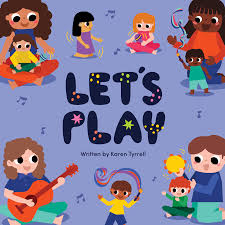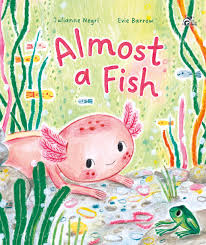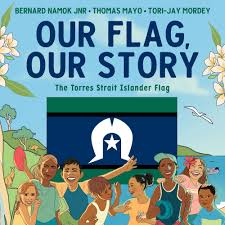The Power of Shared Reading
- OSCAR Care Group
- Nov 4, 2024
- 5 min read
Updated: Jan 3
Reflecting on importance of reading as Speech Pathology Australia releases the 2024 Book of the Year Awards.
Each year, Speech Pathology Australia (SPA) presents the Book of the Year Awards which are judged by a panel of Certified Practising Speech Pathologists with an expertise in children’s language and literacy development. Each nominated book is judged by its appeal to children, how interactive it is and how well it facilitates speech pathologists and caregivers to support communication and literacy skills in children. The annual awards highlight the importance of shared reading experiences and how it can not only help enhance language and literacy skills, but also foster a love for reading.

What is Shared Book Reading?
Shared book reading is when we share or read a book with a child of any age. Shared book reading is a crucial activity for a child’s early development that not only entertains but lays the foundation for early literacy development, oral language and communication. When parents, families or educators read aloud to children, they introduce them to a world of language, imagination and learning.
Numerous studies support the benefits of shared reading and has consistently shown that children who engage in reading activities with adults display improved language skills, literacy development and academic achievement.
Benefits of shared reading:
Exposes children to a variety of vocabulary and sentence structures that they may not hear otherwise in day-to-day spoken conversations.
Supports language, cognitive and communicative development of children.
Promotes growth of communicative styles (eg. poetic, narrative).
Contributes to children’s emergent literacy and reading achievements.
Shared book reading may foster language and literacy skills, such as phonological awareness, speech fluency, and connections with previous knowledge, that supports both comprehension and acquisition of vocabulary.

Tips for Reading with Children
Creating a positive reading experience is key to fostering a love for books. Here are some practical tips for parents and caregivers to make reading enjoyable and effective:
Choose the right books: Select age-appropriate books that capture your child’s interest. Look for colourful illustrations, engaging characters, and relatable themes. Interactive books with flaps or textures can also enhance engagement. For book recommendations, have a look at Speech Pathology Australia’s Book of the Year awards and short lists.
Create a reading routine: Establish a consistent reading time, whether it’s before bed or during quiet afternoons. Routines help children anticipate reading time and build it into their daily lives.
Be expressive: Use different voice for characters and vary your tone to bring the story to life and emphasise grammatical features (eg. question marks, exclamation points, full stops etc). This not only captivates children but also helps them to understand the emotional context of the narrative.
Encourage interaction: Ask open-ended questions about the story and encourage children to predict what might happen next and reflect on the story. This supports critical thinking and keeps them engaged in the reading process.
Follow their lead: Let your child choose books that interest them, even if they are repetitive or simple. Repeated readings build familiarity and confidence, allowing children to explore language at their own pace.
Incorporate movement: Particularly for toddlers, incorporate physical movements into reading. Act out scenes, use hand gestures, create sound effects or even use puppets or toys to make the experience more dynamic and enjoyable.
Model reading behaviour: Show your child that reading is valuable and enjoyable activity. Let them see you read for pleasure and discuss the stories you encounter. This reinforces the idea that reading is a lifelong skill.
Make it social: Consider joining a local library’s story time or book club for kids. Shared experiences with peers can enhance motivation and make reading a fun social activity.

What’s your favourite book?
With the announcement of the winners, our team we took to time to reflect on books we loved as kids ourselves and books we love reading to our children. Rainbow Fish, A Monster at the end of this Book, Charlie and the Chocolate Factory, Matilda, This is MY book, The Adventures of Huckleberry Finn and The Very Hungry Caterpillar – which turns out to be the ultimate favourite here at OSCAR.
Reading in Speech Pathology Sessions
Speech pathologists play a vital role in promoting literacy and language development in children. Speech pathologists are trained to recognise the early signs of speech, language and communication delays or disorders, which can be linked to reading difficulties. By intervening early, they can help children develop the necessary skills to succeed in reading and communication. For children who require support with language and literacy skills, speech pathologists may focus on phonemic awareness, vocabulary building, and comprehension strategies tailored to the child’s individuals needs. Speech pathologists also educate families about the importance of reading and provide practical tips for incorporating reading into daily routines. This holistic approach ensures that children receive consistent support both at home and in therapy.
Stories and reading play a vital role in speech pathology sessions and teach a variety of speech, language, communication and literacy skills. Stories and reading are often used specifically to help support:
Language development: Storytelling introduces new vocabulary and sentence structures helping children expand their language skills.
Narrative skills: Listening to and telling stories enhances a child’s ability to organise thoughts, understand sequencing, and connect ideas, which are essential for effective communication.
Social skills: Stories often involve social situations, allowing children to practice understanding emotions, perspectives, and social cues.
Cognitive skills: Engaging with stories helps develop critical thinking and comprehension skills as children learn to make predictions, infer meaning, and summarise content.
Phonological awareness: Rymes and rhythms in stories can improve phonemic awareness, which is crucial for development of reading and writing skills.
Engagement and motivation: Stories can capture children’s attention and interest, making learning more enjoyable and effective.
Speech, language, communication and literacy development
The annual Book of the Year Awards presented by Speech Pathology Australia highlights the role shared reading plays in fostering speech, language, communication and literacy skills in children. Engaging in reading not only enhances vocabulary and narrative understanding, but also supports cognitive development. As speech pathologists utilise reading and storytelling within sessions, they empower children to develop communication skills in an interactive and enjoyable way and support families to nurture a lifelong love for reading.
By engaging children in shared reading, we can all contribute to a child’s growth in language, literacy, and overall academic success. Ultimately, the power of shared reading and storytelling is more than entertainment, but a foundational element in a child’s journey towards effective communication and learning.
2024 Book of the Year Award Winners
Birth to 3 years Let’s Play by Karen Tyrrell
3–5 years Almost a Fish by Julianne Negri
5–8 Years Harriet Hound by Kate Foster
8–10 Years Being Jimmy Baxter by Fiona Lloyd
Aboriginal and Torres Strait Islander Children’s Book Award Our Flag, Our Story: The Torres Strait Islander Flag by Thomas Mayo and Bernard Namok Jnr
Decodable Book Series Award Fox Kid by Adrian Beck
For more information about the winners, shortlisted books and previous winner, go to Speechpathologyaustralia.org.au








